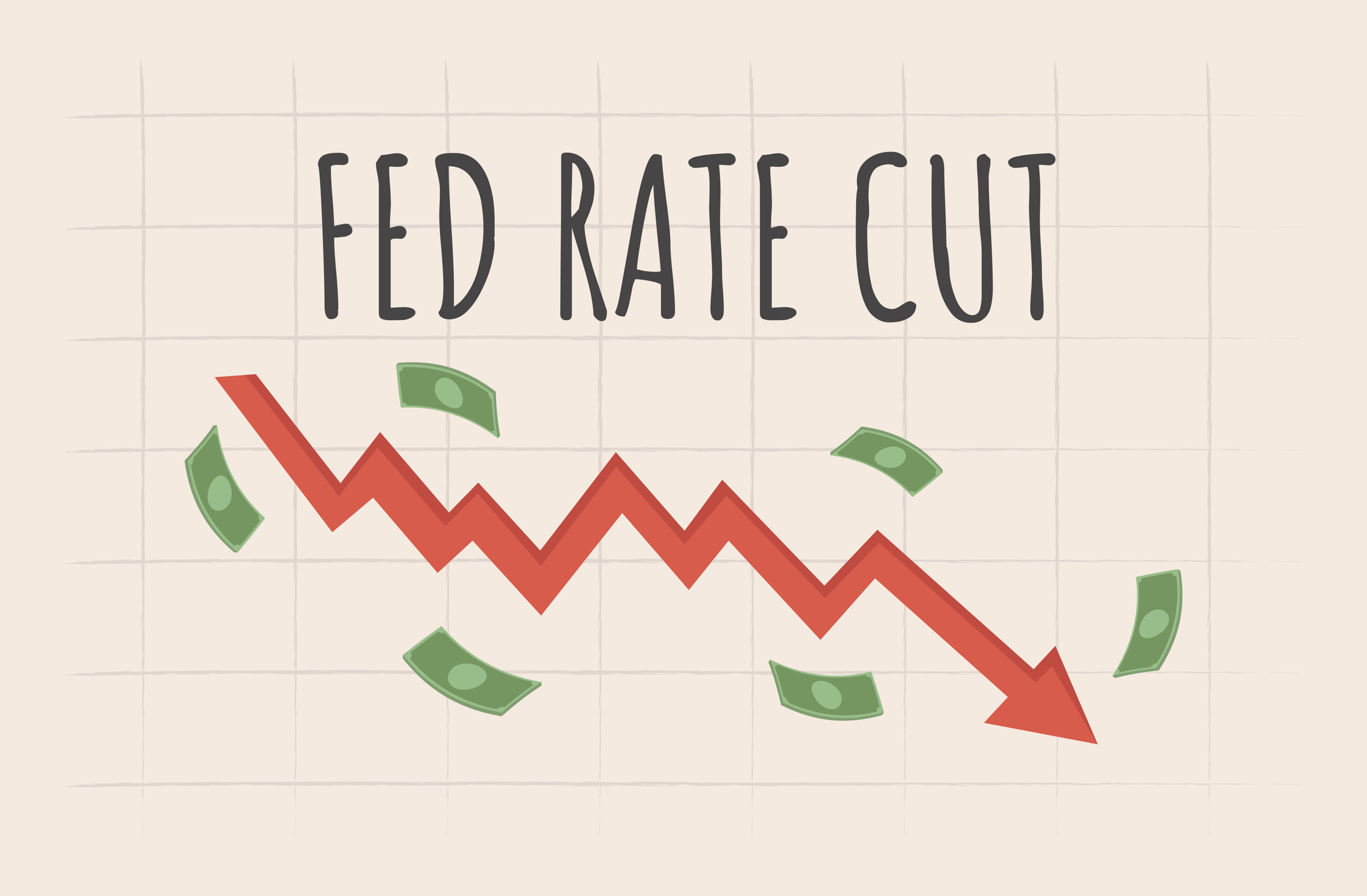Steady Advice for Worried Income Investors
High-yielding stocks that excelled in 2015 and 2016, such as AT&T, will regain favor.


Profit and prosper with the best of Kiplinger's advice on investing, taxes, retirement, personal finance and much more. Delivered daily. Enter your email in the box and click Sign Me Up.
You are now subscribed
Your newsletter sign-up was successful
Want to add more newsletters?

Delivered daily
Kiplinger Today
Profit and prosper with the best of Kiplinger's advice on investing, taxes, retirement, personal finance and much more delivered daily. Smart money moves start here.

Sent five days a week
Kiplinger A Step Ahead
Get practical help to make better financial decisions in your everyday life, from spending to savings on top deals.

Delivered daily
Kiplinger Closing Bell
Get today's biggest financial and investing headlines delivered to your inbox every day the U.S. stock market is open.

Sent twice a week
Kiplinger Adviser Intel
Financial pros across the country share best practices and fresh tactics to preserve and grow your wealth.

Delivered weekly
Kiplinger Tax Tips
Trim your federal and state tax bills with practical tax-planning and tax-cutting strategies.

Sent twice a week
Kiplinger Retirement Tips
Your twice-a-week guide to planning and enjoying a financially secure and richly rewarding retirement

Sent bimonthly.
Kiplinger Adviser Angle
Insights for advisers, wealth managers and other financial professionals.

Sent twice a week
Kiplinger Investing Weekly
Your twice-a-week roundup of promising stocks, funds, companies and industries you should consider, ones you should avoid, and why.

Sent weekly for six weeks
Kiplinger Invest for Retirement
Your step-by-step six-part series on how to invest for retirement, from devising a successful strategy to exactly which investments to choose.
This column and Kiplinger’s Investing for Income, the monthly newsletter over which I preside, attract many comments and queries. This month I will address questions from readers, many of whom are skittish about the ascension of Donald Trump to the presidency and the stock market’s ebullient early reaction to the new administration.
Sometimes I’m asked about a specific stock or fund, but lately I’ve been getting more inquiries about big-picture matters. How to handle the threat of escalating interest rates is a common topic. Another is whether it’s time to back off from utility stocks, real estate investment trusts, master limited partnerships and other popular antidotes to low savings yields. Then come questions that boil down to whether Trump’s penchant for confrontation will destabilize markets.
Even big-picture questions are often couched in practical terms. One worried reader wondered if he should stop reinvesting the tens of thousands of dollars’ worth of dividends he collects every year into more shares and use the payouts to build a ladder of certificates of deposit. (My answer: Go ahead. That’s a clever way to trim your stock allocation without selling shares and creating a tax liability.) Another reader asked if he ought to leave $120,000 he’ll need in six months in a checking account or chase a higher return. (My reply: Put the cash in an insured online savings account. With so little time before you need the money, you can’t afford big losses should your quest for a higher return misfire.) Here are my thoughts on a few other issues to consider as Trump’s agenda takes shape.
From just $107.88 $24.99 for Kiplinger Personal Finance
Become a smarter, better informed investor. Subscribe from just $107.88 $24.99, plus get up to 4 Special Issues

Sign up for Kiplinger’s Free Newsletters
Profit and prosper with the best of expert advice on investing, taxes, retirement, personal finance and more - straight to your e-mail.
Profit and prosper with the best of expert advice - straight to your e-mail.
First, interest rates. Kiplinger’s official forecast calls for the yield on 10-year Treasury bonds, recently 2.4%, to reach 3.0% by year-end. I think there’s a good chance that the yield on the benchmark bond won’t climb that high. The rise in yields that started last summer got an extra charge after Election Day as investors concluded that an all-Republican government would deliver tax cuts and a massive infrastructure spending program that would goose growth . . . and inflation. I wouldn’t count on legislation emerging quickly or on a spending program being as large as some expect it to be.
Fed restraint. As for short-term rates, the Fed has said it expects to hike them three times in 2017. Even if it does, I don’t expect long-term rates to rise sharply. So hang on to your bonds, Ginnie Mae funds and real estate investment trusts that own mortgages.
Turning to stocks, the same expectations that resulted in higher bond yields have also pushed up share prices since Election Day. Shares of firms involved in construction and heavy industry, such as Cummins (symbol CMI) and U.S. Steel (X), have been especially strong. The hope is that they will capitalize on Trump-sponsored mega-projects, such as massive highway and airport upgrades.
However, investor euphoria may collide with the real possibility that a deficit-constrained Congress may not appropriate gazillions for transportation and other projects. I’d watch for a rotation back to the same kinds of high-yielding stocks that excelled in 2015 and 2016. I continue to favor AT&T (T, $42), which yields 4.7%. I’d also stay with property-owning REITs. Real estate companies are growth stocks that offer a potent hedge against inflation. A good way to own REITs is with Schwab U.S. REIT (SCHH, $42), which yields 3.4% (prices and yields are as of February 28).
Financial markets have remained remarkably cool in the face of a seemingly endless stream of controversial actions from the new president. Investors are clearly less worried than headline writers. How long investors can remain so complacent is a mystery to me. But even in normal times it’s impossible to time the markets, so there’s no point in trying. Keep hugging those interest and dividend payments.
Profit and prosper with the best of Kiplinger's advice on investing, taxes, retirement, personal finance and much more. Delivered daily. Enter your email in the box and click Sign Me Up.

Kosnett is the editor of Kiplinger Investing for Income and writes the "Cash in Hand" column for Kiplinger Personal Finance. He is an income-investing expert who covers bonds, real estate investment trusts, oil and gas income deals, dividend stocks and anything else that pays interest and dividends. He joined Kiplinger in 1981 after six years in newspapers, including the Baltimore Sun. He is a 1976 journalism graduate from the Medill School at Northwestern University and completed an executive program at the Carnegie-Mellon University business school in 1978.
-
 Dow Adds 1,206 Points to Top 50,000: Stock Market Today
Dow Adds 1,206 Points to Top 50,000: Stock Market TodayThe S&P 500 and Nasdaq also had strong finishes to a volatile week, with beaten-down tech stocks outperforming.
-
 Ask the Tax Editor: Federal Income Tax Deductions
Ask the Tax Editor: Federal Income Tax DeductionsAsk the Editor In this week's Ask the Editor Q&A, Joy Taylor answers questions on federal income tax deductions
-
 States With No-Fault Car Insurance Laws (and How No-Fault Car Insurance Works)
States With No-Fault Car Insurance Laws (and How No-Fault Car Insurance Works)A breakdown of the confusing rules around no-fault car insurance in every state where it exists.
-
 What Fed Rate Cuts Mean For Fixed-Income Investors
What Fed Rate Cuts Mean For Fixed-Income InvestorsThe Fed's rate-cutting campaign has the fixed-income market set for an encore of Q4 2024.
-
 The Most Tax-Friendly States for Investing in 2025 (Hint: There Are Two)
The Most Tax-Friendly States for Investing in 2025 (Hint: There Are Two)State Taxes Living in one of these places could lower your 2025 investment taxes — especially if you invest in real estate.
-
 The Final Countdown for Retirees with Investment Income
The Final Countdown for Retirees with Investment IncomeRetirement Tax Don’t assume Social Security withholding is enough. Some retirement income may require a quarterly estimated tax payment by the September 15 deadline.
-
 What Tariffs Mean for Your Sector Exposure
What Tariffs Mean for Your Sector ExposureNew, higher and changing tariffs will ripple through the economy and into share prices for many quarters to come.
-
 Stock Market Today: Stocks End Mixed Ahead of Powell
Stock Market Today: Stocks End Mixed Ahead of PowellPolitical upheaval in South Korea kept investors on their toes Tuesday.
-

 Stock Market Today: Stocks Drop, Oil Spikes After Iran Attacks Israel
Stock Market Today: Stocks Drop, Oil Spikes After Iran Attacks IsraelA massive port strike and dismal economic data also weighed on the main indexes Tuesday.
-

 Stock Market Today: Stocks Gain After Powell Talks Rate Cuts
Stock Market Today: Stocks Gain After Powell Talks Rate CutsA late-day burst of buying power helped the main indexes close higher for the day, month and quarter.
-
 Best Stocks to Buy for Fed Rate Cuts
Best Stocks to Buy for Fed Rate CutsThe Federal Reserve cut rates again at its December meeting, and lower borrowing costs could boost these large-cap stocks.